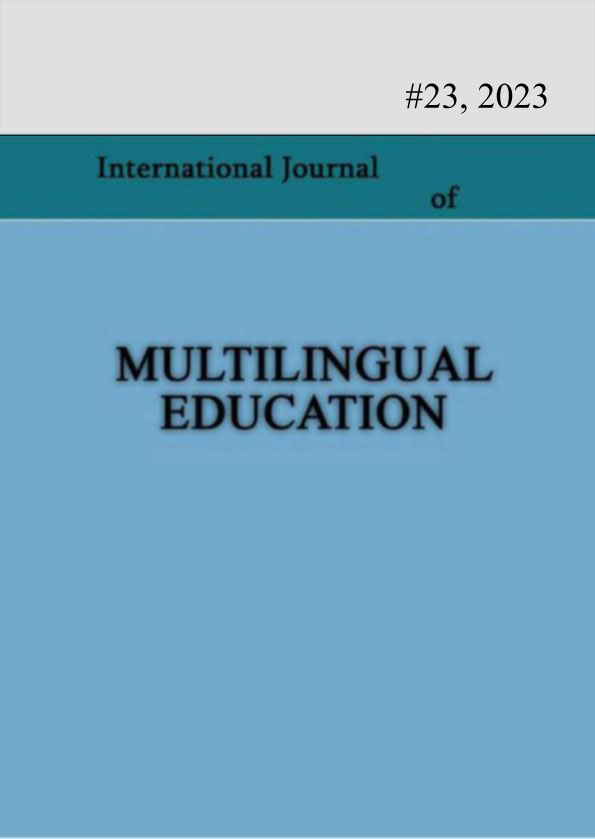Parallel Corpora and Implementation Possibilities in Multilingual Education (Georgian-Abkhazian Parallel Corpus of "The Knight in the Panther’s skin")
Keywords:
Corpora, aphorisms, translation, abkhazian languageAbstract
The epic The Knight in the Panther’s Skin by Shota Rustaveli is a well-known literary work inside and outside of Georgia, which has been translated into more than 50 languages. It comes as no surprise that the epic offers many topics for intradisciplinary as well as interdisciplinary researches, one of which will be discussed here, namely aphorisms found in the translations of the epic. The translations in question are in Abkhazian, of which two exist: one translated by Dimitri Gulia (published in 1941) and the other by Mushni Lasuria (published in 1978). For a methodological analysis, the parallel corpus of the Abkhazian translations GeAbCo (https://geabco.com/) was created. This paper will explain the planning and conception of the corpus as well as show a first attempt of an analysis considering the aphorisms found, whereat even the question about the actual number of aphorisms in the epic is a research question itself.
References
Baayen, R. H. (2001). Word frequency distributions (Vol. 18). Springer Science & Business Media.
Hewitt, B. George. (1979). Abkhaz. (Lingua Descriptive Studies, 2.) Amsterdam: North- Holland.
Rustaveli (Abkhazian). 1984 - Шота Руставели. Абжьас-цәа зшәу / Еитеигеит Д. Гулиа. _ Акуа: Апхәынтшәкутыжьырта, 1959 (Абжьасцәа зшәу / Гулиа Д. Ивымтакуа реизга. _ Акуа: Алашара).
Rustaveli (Russian). Руставели, Шота. Абжьас-цәа зшәу / Акыртшәахьтә еитеигеит М. Лашәриа. Акуа: Алашара, 1978.
Schultink, H. (1961). “Produktiviteit als morfologisch fenomeen”. In: Forum der letteren (Vol.
2, No. 1, pp. 110-125).
Tschorn, P. & Lüdeling, A. (2003). Morphological knowledge and alignment of English- German parallel corpora. Conference paper. Berlin: Humboldt-Universität zu Berlin, Philosophische Fakultät II (http://dx.doi.org/10.18452/13416)
Downloads
Published
How to Cite
Issue
Section
License
Copyright (c) 2023 Leila Avidzba, Manana Tandashvili, Mariam Kamarauli

This work is licensed under a Creative Commons Attribution-NonCommercial 4.0 International License.
Copyright (c) - Authors who publish with this journal agree to the following terms: Authors retain copyright and grant the journal the right of first publication with the work simultaneously licensed under a Creative Commons Attribution-Noncommercial 4.0 International License, which allows others to share the work with an acknowledgement of the work's authorship and initial publication in this journal. Authors are permitted and encouraged to post their work online (e.g., in institutional repositories or on their personal website) prior to and during the submission process, as it can lead to productive exchanges, as well as earlier and greater citation of published work (see The Effect of Open Access). Authors may enter into separate, additional contractual arrangements for the non-exclusive distribution of the journal's published version of the work (e.g., post it to a repository or publish it in a book), with an acknowledgement of its initial publication in this journal.

